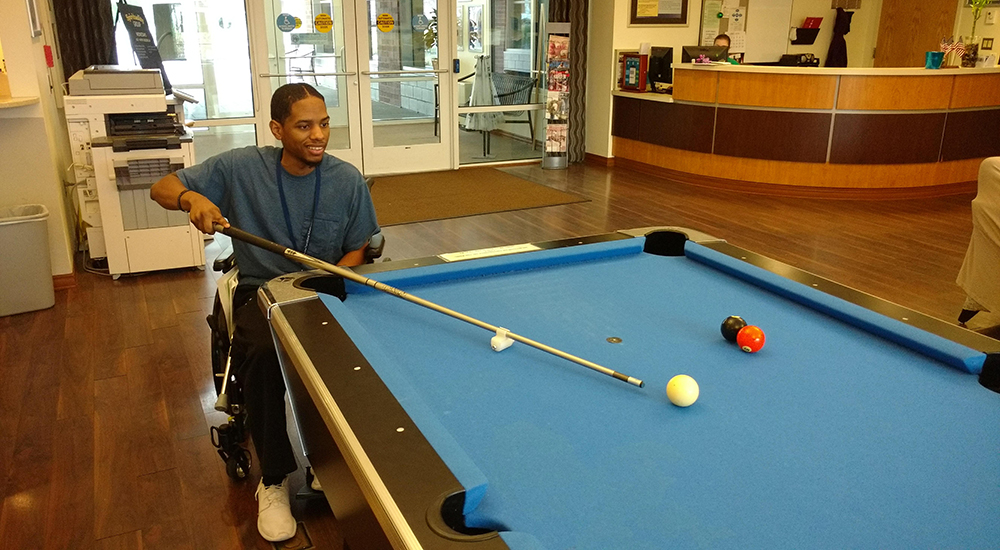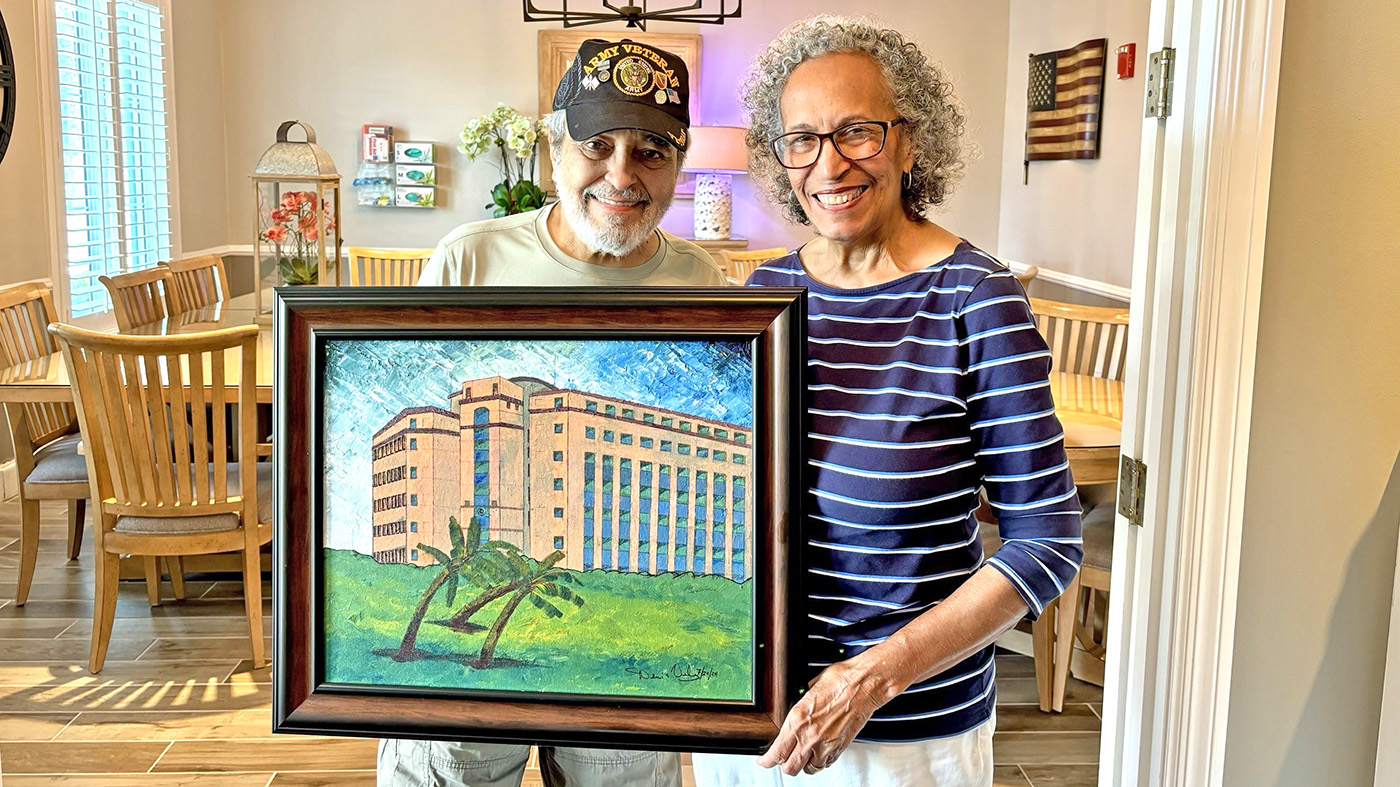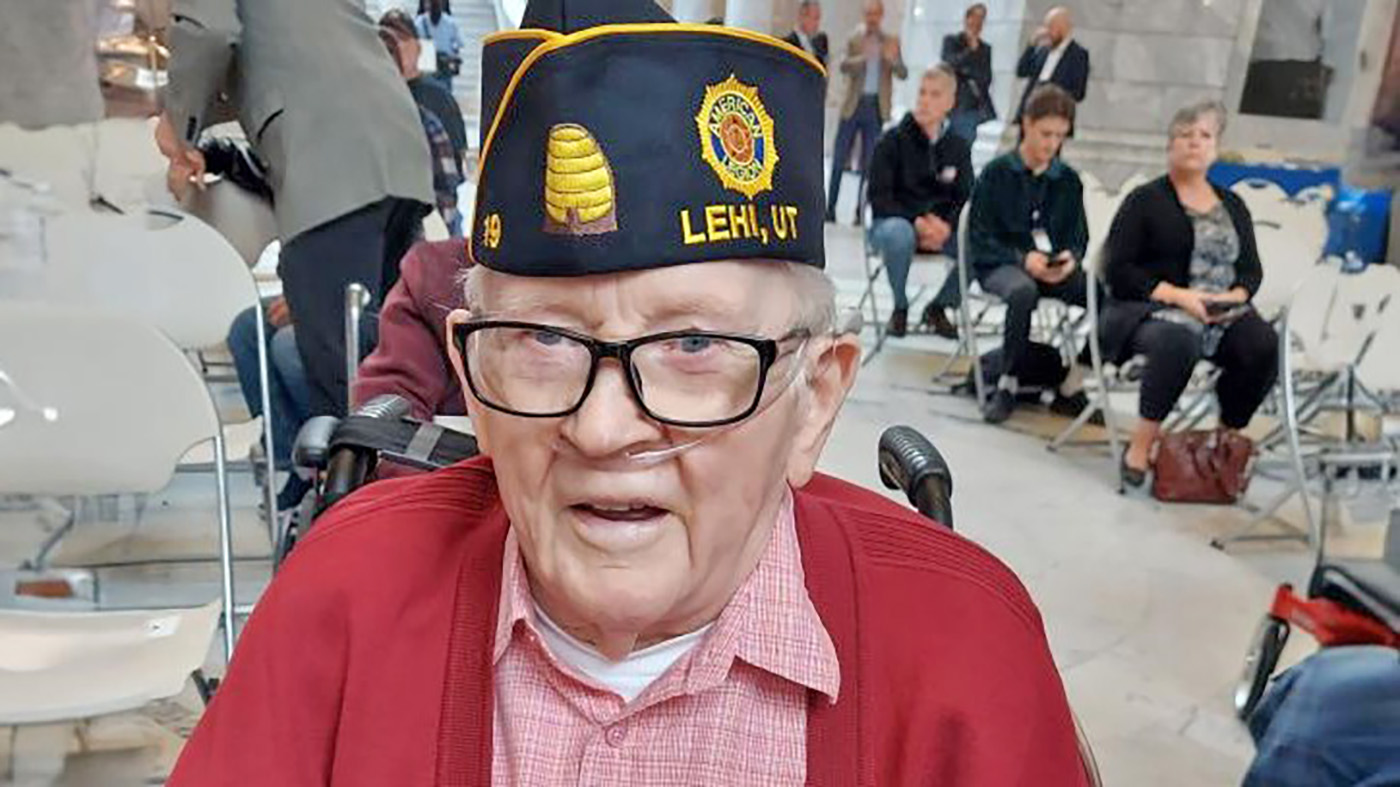Shooting pool is a pastime many people enjoy, including Veterans and Servicemembers. Navy Corpsman Malik Jones, pictured above, is definitely one of those individuals.
For years he played pool every weekend with his friends. That all changed, as with most everything else in his life, on July 29, 2017, when he suffered a gunshot to the back of his head while he was stateside in Virginia Beach, Va. Malik suffered a traumatic brain injury and was left paralyzed on the left side of his body as a result of this injury.
Malik, who enlisted at 19 years old and is currently 22, is still on active duty in the Navy. His treatment and rehabilitation are being coordinated in partnership with the Department of Veterans Affairs.
When he arrived at McGuire VA Medical Center’s Polytrauma Rehabilitation Center in Richmond, Va., Jennifer Vass, a Certified Therapeutic Recreation Specialist, immediately started working to engage him back into recreational activities he enjoyed. He wanted to play pool, but trying to manage a traditional pool bridge and the pool stick was next to impossible.
Jennifer had heard about the 3D Printed rolling pool bridge the Assistive Technology (AT) Rehabilitation Engineering team had developed, so she tried it with Malik. “He picked up on it really quickly and immediately had strategy on how to use it,” according to Jennifer.
Malik says, “Depending on how far away the cue ball is will determine where I place the rolling pool bridge on the pool stick. It is awesome!”
Where did the idea come from? According to Seth Hills, one of the AT rehab engineers, “Nicole Shuman, one of our adaptive sports recreational therapist, came up with the concept by putting a toy train on the pool stick to see if it would work and it did. So, she asked us to further develop the idea.”
There is something similar on the market, but it is too narrow to get on and off the pool stick. Seth took approximately eight hours to design the concept, and approximately five hours to print in nylon using the AT Program’s 3D Printer.
“We went through three versions before finally coming up with the one that Malik is using.” Vass stated. “Malik is really excited to play again.”
Motivated to move forward with his life, Malik is doing more than playing pool, working hard with staff of the Polytrauma Transitional Rehabilitation Program to regain his lost strength and skills. He is making regular taking trips into the community for both leisure and community reintegration and he recently enrolled in the VA’s Driver Rehabilitation Program so that he can regain the skills to drive a car again.
“I am so happy with the progress that I see with Malik Jones”, said Vass. “His speech and comprehension are great and he is walking every day. He has made tremendous physical progress and, maybe more importantly, he is far more outgoing and happy these days. Working hard with the right attitude makes all the difference in the world, for all of us.”
Learn more about the VA TBI/Polytrauma Rehabilitation Program at: www.polytrauma.va.gov
Learn more about other VA Rehabilitation Program at: www.rehab.va.gov

Topics in this story
More Stories
Army Veteran Denis Velez donated a painting of his VA hospital as a way of giving back for his treatment there.
Ron Anderson's story of being caregiver for his father in his final years is a journey of love and duty.
Ignoring challenging emotions can negatively impact our health. Breathe through worry, anger and sadness in 5 minutes with this week's #LiveWholeHealth practice.








